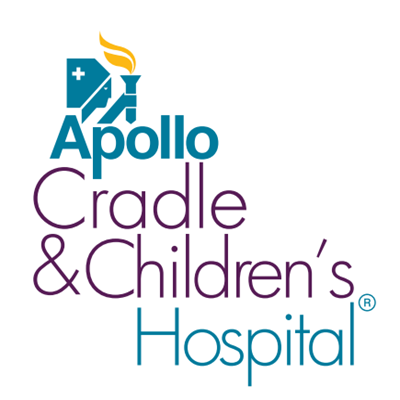Polycystic ovary syndrome (PCOS) is a condition that affects the female reproductive system. It is a common hormonal disorder that affects 1 in 10 women of childbearing age.
It is characterised by hormone imbalances, irregular menstrual cycles, and small cysts on the ovaries. PCOS can lead to difficulties getting pregnant and other long-term health problems.
The symptoms of PCOS vary from person to person and can range from mild to severe. With proper diagnosis and management, patients can live healthy lives while managing their symptoms.
What causes PCOS?
PCOS is caused by a combination of genetic, lifestyle, and environmental factors. Genetics plays a role, as it can be passed down from family members. Lifestyle factors such as being overweight or obese, eating an unhealthy diet, not getting enough exercise, and having high-stress levels can also contribute to the development of PCOS.
Environmental factors like exposure to certain chemicals or pollutants may also influence the development of PCOS. It is important to note that there is no one-size-fits-all cause for PCOS, and all these factors must be considered when looking into the potential cause of this disorder.
What are the symptoms of PCOS?
The most common symptoms of polycystic ovary syndrome (PCOS) are irregular or absent menstrual periods, excess male hormones, weight gain, acne, and thinning hair.
Additional signs may include excess facial and body hair growth, infertility, depression, anxiety, and sleep apnea. Women with PCOS may also experience difficulty losing weight and high levels of cholesterol in the blood.
Other possible effects are pelvic pain and an increased risk of developing type 2 diabetes, endometrial cancer, or ovarian cysts.
What are the treatment options for PCOS?
Treatment options for PCOS depend on the individual case and can include lifestyle changes such as diet and exercise, medications, surgery, or a combination of these. Lifestyle changes may help reduce symptoms such as hirsutism, acne, and obesity.
Medications used to treat PCOS include oral contraceptives, anti-androgenic agents, and insulin-sensitizing drugs. Surgery can be used to treat PCOS-related infertility by removing cysts from the ovaries or reducing abnormal hormone production in the ovaries. Combining treatments is often beneficial for those with severe cases of PCOS.
How can one prevent PCOS?
A healthy lifestyle is the best way to prevent PCOS. Exercise regularly, and ensure you are eating a balanced diet with plenty of fresh fruit and vegetables. Avoid processed foods and sugary snacks.
Maintain a healthy weight, as this can reduce the severity of PCOS symptoms or even eliminate them. Speak to your doctor about taking oral contraceptives to regulate hormones.
Make sure you get adequate sleep and reduce stress levels to maintain hormonal balance. Lastly, take vitamins such as Vitamin D3 or Omega-3 fatty acids, which are beneficial for women with PCOS.
When should one see a doctor for PCOS?
If a woman has any of the symptoms associated with PCOS, such as irregular menstrual cycles, excessive facial or body hair growth, obesity, acne, thinning hair, and/or infertility, she should see her doctor for further evaluation. The doctor may order tests such as blood tests to measure hormone levels and an ultrasound to look at the ovaries.
It is also important to have regular checkups to monitor for long-term complications of PCOS, such as diabetes and heart disease. Early diagnosis and treatment can help manage symptoms and reduce long-term risks. Take the first step towards understanding PCOS and its treatment.
Conclusion
Polycystic ovary syndrome (PCOS) is a common hormonal disorder among women of reproductive age that can cause infertility, irregular periods, and other symptoms. Treatment for PCOS typically involves lifestyle changes such as diet and exercise, medications to manage symptoms, or surgery to remove cysts from the ovaries.
By taking control of their health and seeking appropriate treatment, women with PCOS can reduce the effects of the condition on their lives and increase their chances of conceiving. With proper care and management, those with PCOS can live healthy and fulfilling lives.
Request an appointment at Apollo Cradle, Bengaluru - Koramangala. Call 1860-500-4424 to book an appointment.
PCOS is associated with a high prevalence of insulin resistance, which occurs when cells do not respond to normal levels of insulin, leading to an increase in blood sugar.
Hormonal imbalances associated with PCOS, such as elevated levels of androgens like testosterone, can lead to a variety of physical symptoms, including acne, hirsutism, and male-pattern baldness.
Diagnostic tests for PCOS may include a physical exam, laboratory testing of hormones such as testosterone and follicle-stimulating hormone (FSH), ultrasound imaging, and/or a biopsy procedure to examine the ovaries for cysts or other irregularities.
Yes, PCOS can lead to an increased risk of diabetes, high blood pressure, heart disease, and stroke if left untreated.
There is currently no cure for PCOS; however, treatments are available to manage the symptoms. These may include lifestyle changes such as diet and exercise modifications, medications like the birth control pill or anti-androgens, or surgery in some cases.

 93% Patient Satisfaction Score
93% Patient Satisfaction Score























